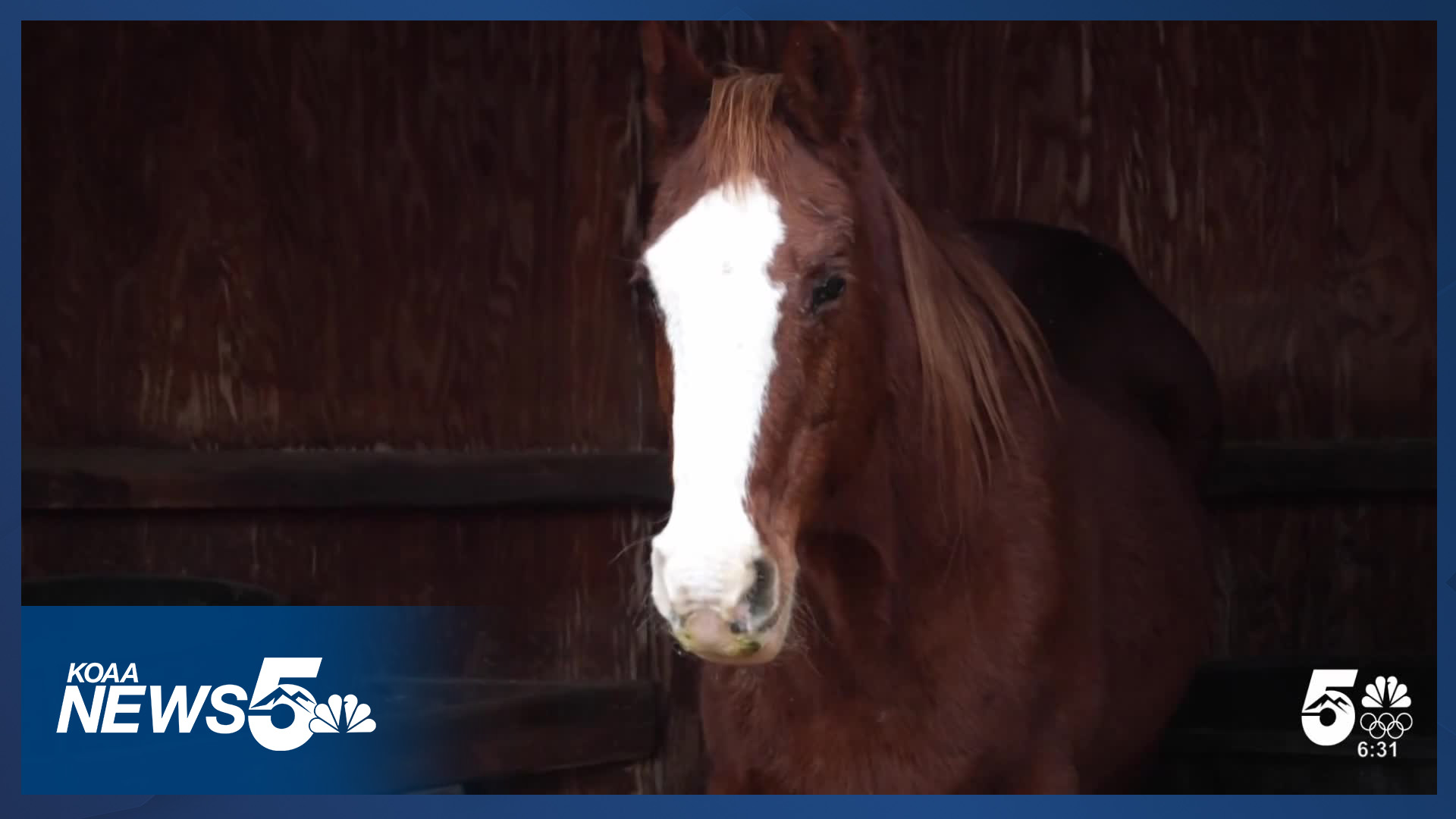BLACK FOREST, Colo. (KOAA) — Some horse owners and caretakers across Colorado are taking extra precautions as cases of Equine Herpes Virus 1 (EHV-1) continue to spread, with some local rescue facilities implementing strict quarantine protocols to protect their animals.
At Safe Landing Horse Rescue in Black Forest, Lucy, a malnourished mare, represents the careful balance rescue operations must maintain between caring for horses in need and preventing disease transmission.
"It's everything to me. There's nothing that makes me so happy," said Lanya Clinard, the rescue's founder and director.
Clinard said she serves as an advocate for horses that arrive injured, malnourished or ill, though she has never dealt with a case of EHV-1 before.
"We are a voice for the horses," said Clinard.
The rescue operator maintains strict quarantine protocols for all incoming horses, including those transported from out of state. She has designated a separate isolation area specifically for horses with highly contagious viruses like EHV-1.
"Everybody has to be very vigilant about it and not just assuming, 'oh it's okay, I'll take my horse and go ride it where no one is sick.' Your horse can contract it that way," said Clinard.
According to the U.S. Department of Agriculture, the virus spreads primarily through horse-to-horse contact. Equine veterinarian Kyler Gilbreath said horse owners who keep their animals at home face minimal risk.
"For the vast majority of owners, if you don't have to haul your horses anywhere, that's going to limit your risk," said Gilbreath.
The danger increases when horses gather in groups, similar to how humans spread illness to one another. An outbreak can begin when a seemingly healthy horse sheds the virus in spaces like rodeos or other equine events.
Early detection proves crucial for treatment success. Gilbreath recommends checking horses' temperatures twice daily, as fever represents the first symptom. Horse owners should also watch for ataxia, or worsening motor function in the animals' hind legs.
"If you're not taking (the) temperature of your horse at least two times a day, you might not be able to see early signs," said Gilbreath.
A biannual vaccine is available for horses, though it only limits symptoms and viral shedding rather than preventing infection entirely.
For rescue operators like Clinard, the current outbreak means reconsidering travel plans with horses.
"Horses are like family. You wouldn't want to expose your family to something that could kill them," said Clinard.
While humans cannot contract EHV-1, they can spread the virus through contaminated clothing, shoes, and equipment. Gilbreath emphasizes the importance of keeping gear clean and avoiding movement between stables without proper cleaning and clothing changes.
___

Does Colorado Springs car camping ban raise concerns for local safe-parking program
A Colorado Springs city council vote to ban car camping is raising questions for a local respite care provider working to launch the city's first safe-parking program.
____
Watch KOAA News5 on your time, anytime with our free streaming app available for your Roku, FireTV, AppleTV and Android TV. Just search KOAA News5, download and start watching.



